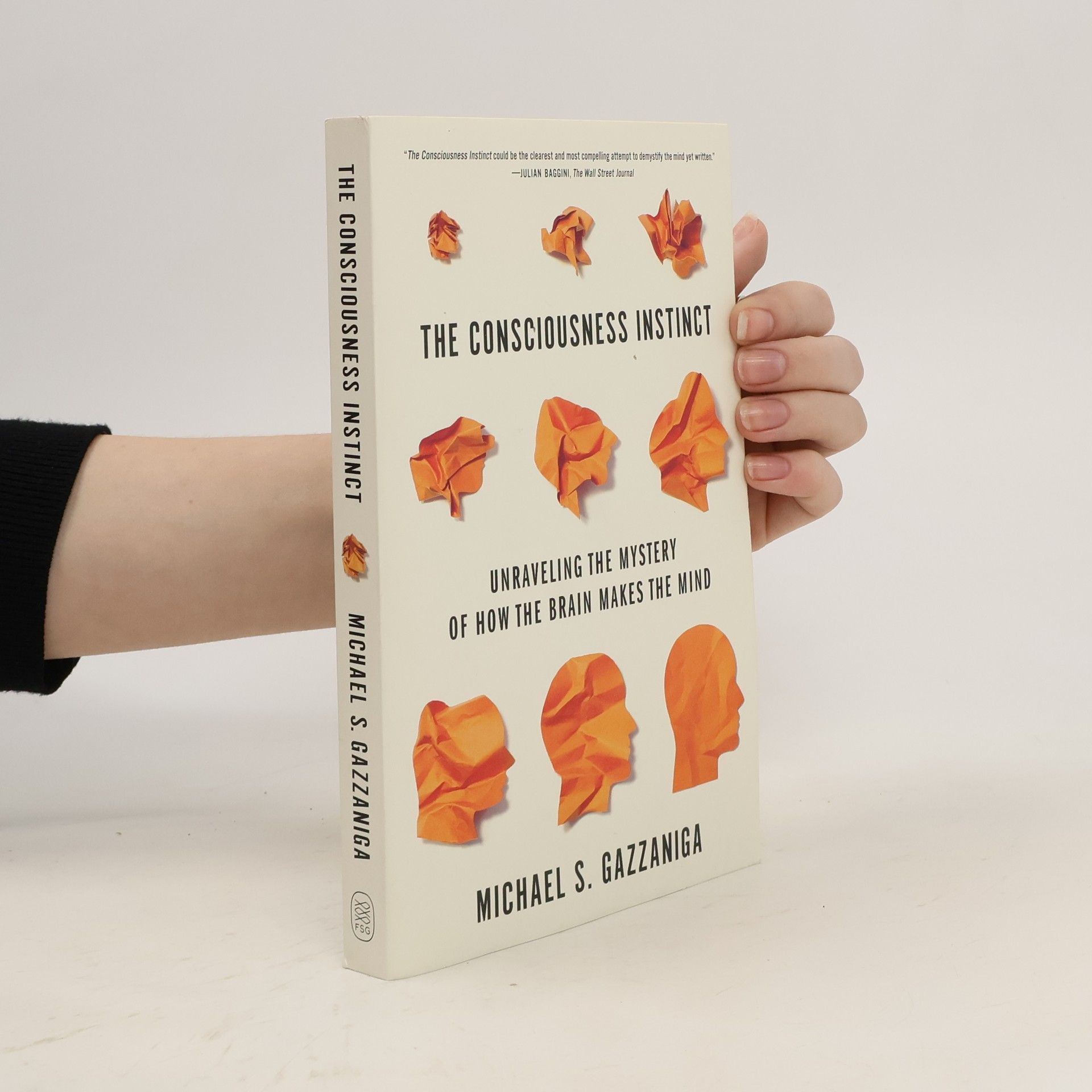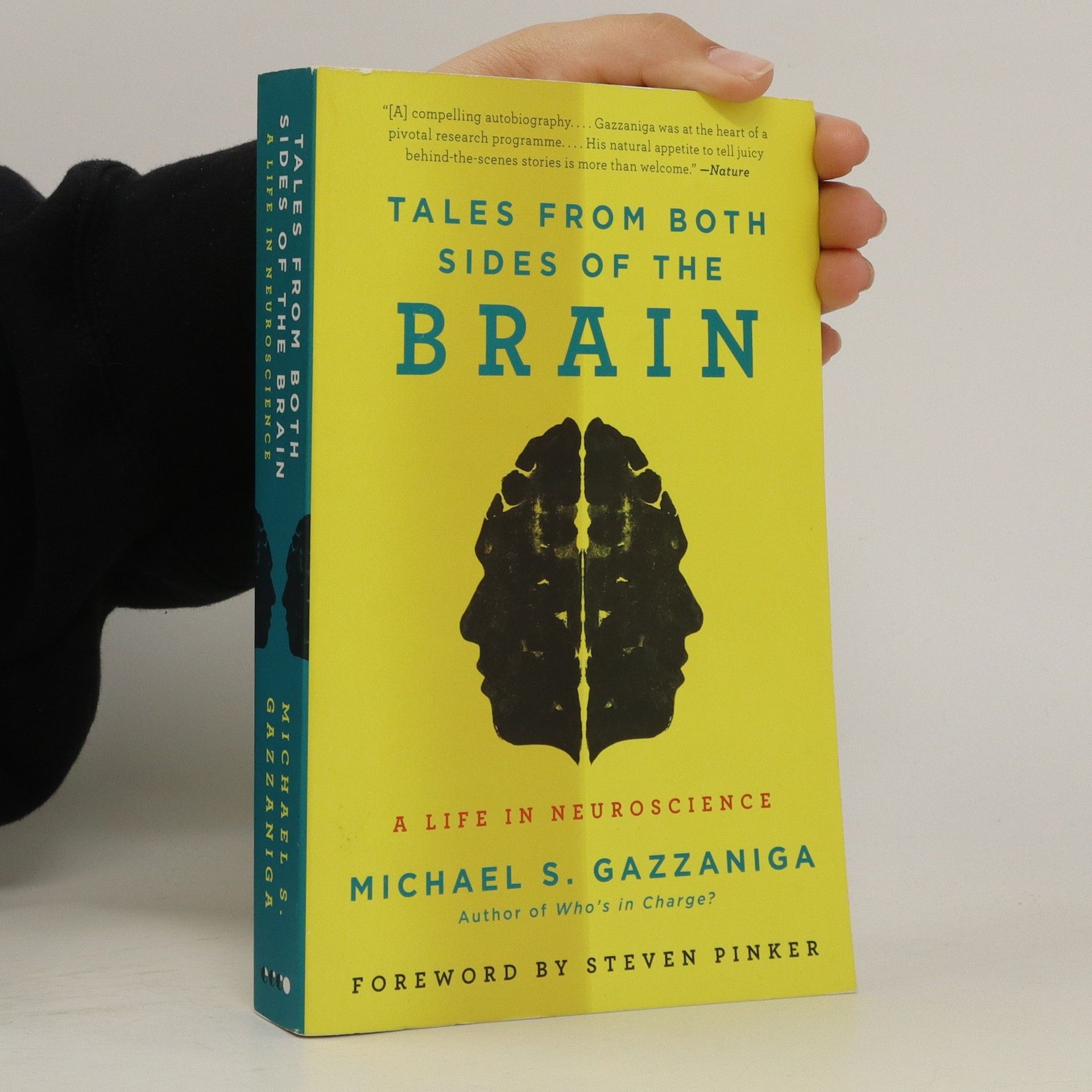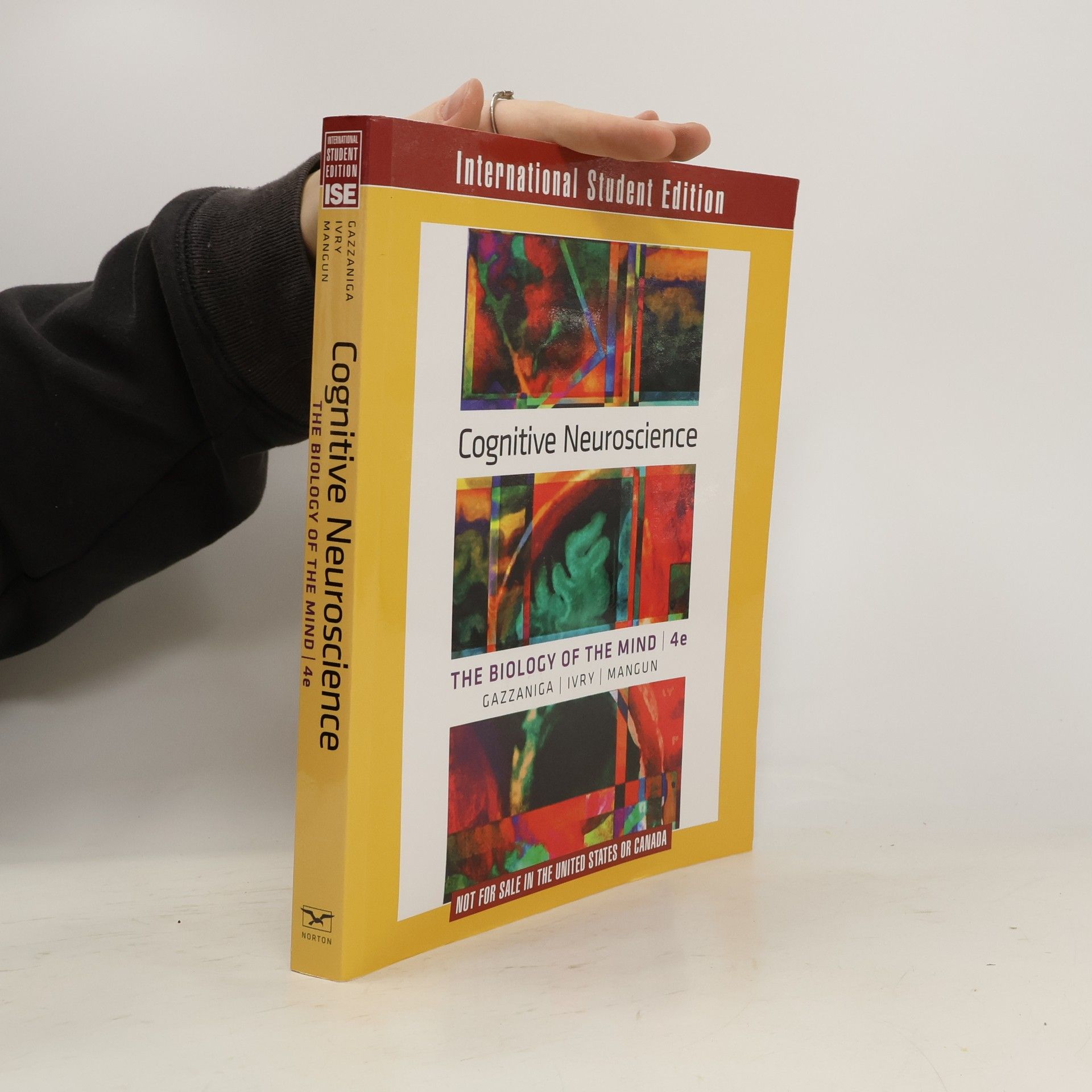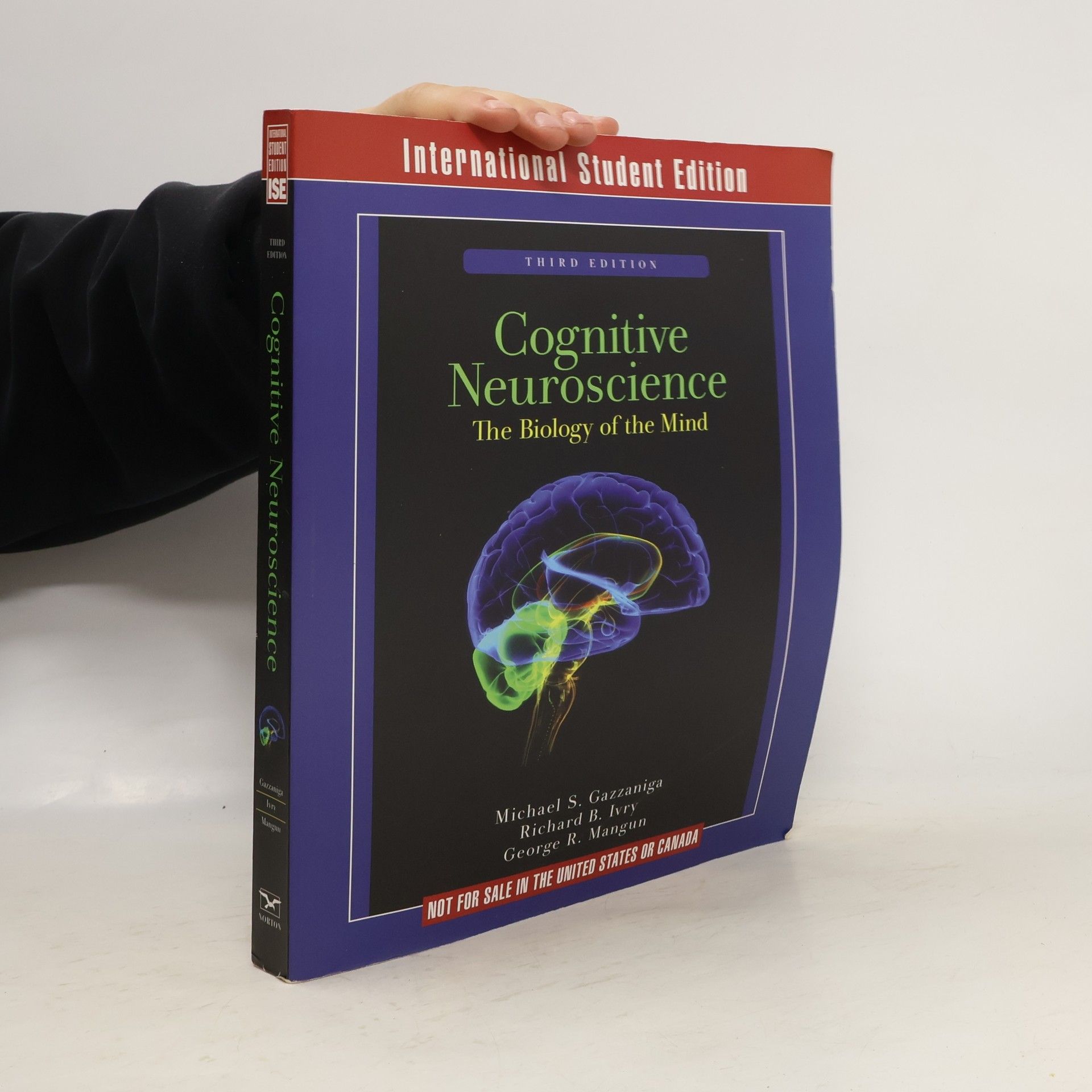Ożywcza opowieść o naukowych i filozoficznych aspektach świadomości. Michael S. Gazzaniga stawia pytania dotyczące związku między neuronami a umysłem oraz tego, jak fizyczne obiekty tworzą różnorodne światy w naszych głowach. Problem świadomości fascynuje nas od wieków, a mimo postępów w badaniach nad mózgiem, zagadnienia sprzed tysięcy lat wciąż pozostają nierozwiązane. Gazzaniga łączy najnowsze badania z historią ludzkich rozważań, oferując pełny obraz naszej wiedzy o świadomości. Przedstawia model mózgu jako konfederacji niezależnych modułów, które współdziałają, podkreślając, że mózgi tworzą maszyny, ale ich nie redukują. Zrozumienie tej organizacji może kierować przyszłymi badaniami nad mózgiem i sztuczną inteligencją, wypełniając lukę między mózgiem a umysłem. Książka jest przystępna, pełna spostrzeżeń z wieloletnich badań, wytyczając kierunek neuronauki. Gazzaniga, dyrektor Centrum Badania Umysłu SAGE, jest autorem wielu książek popularnonaukowych i pionierem badań nad świadomością. Opisuje, jak neurony konkurują, by sygnalizować swoje rozumienie poznawczych mikroświatów, tworząc chór zwany świadomością. Jego prace skłaniają do refleksji nad trudnymi problemami psychologicznymi, oferując cenną wartość dla każdego zainteresowanego tym tematem.
Michael Gazzaniga Book order (chronological)
Michael S. Gazzaniga delves into the intricate workings of the human brain, exploring the complex mechanisms that govern our thoughts, emotions, and behavior. As a leading neuroscientist, his work bridges the gap between technical research and accessible insight, illuminating the mysteries of cognition. He offers readers a fascinating journey into the mind, examining how it functions, interacts with the body, and responds to the environment. His writings stimulate curiosity about consciousness and the profound relationship between our inner world and external experiences.







The Consciousness Instinct
Unraveling the Mystery of How the Brain Makes the Mind
- 288 pages
- 11 hours of reading
How do neurons turn into minds? How does physical "stuff". Atoms, molecules, chemicals, and cells- create the vivid and various worlds inside our heads? The problem of consciousness has gnawed at us for millennia. In the last century there have been massive breakthroughs that have rewritten the science of the brain, and yet the puzzles faced by the ancient Greeks are still present. In The Consciousness Instinct, the neuroscience pioneer Michael S. Gazzaniga puts the latest research in conversation with the history of human thinking about the mind, giving a big-picture view of what science has revealed about consciousness
Tales from Both Sides of the Brain
- 448 pages
- 16 hours of reading
Michael S. Gazzaniga, one of the most important neuroscientists of the twentieth century, gives us an exciting behind-the-scenes look at his seminal work on that unlikely couple, the right and left brain. Foreword by Steven Pinker. In the mid-twentieth century, Michael S. Gazzaniga, “the father of cognitive neuroscience,” was part of a team of pioneering neuroscientists who developed the now foundational split-brain brain theory: the notion that the right and left hemispheres of the brain can act independently from one another and have different strengths. In Tales from Both Sides of the Brain, Gazzaniga tells the impassioned story of his life in science and his decades-long journey to understand how the separate spheres of our brains communicate and miscommunicate with their separate agendas. By turns humorous and moving, Tales from Both Sides of the Brain interweaves Gazzaniga’s scientific achievements with his reflections on the challenges and thrills of working as a scientist. In his engaging and accessible style, he paints a vivid portrait not only of his discovery of split-brain theory, but also of his comrades in arms—the many patients, friends, and family who have accompanied him on this wild ride of intellectual discovery.
The Cognitive Neurosciences
- 1128 pages
- 40 hours of reading
This fifth edition serves as a comprehensive reference in cognitive neuroscience, incorporating the latest advancements in the field. It explores the intricate connections between the nervous system's structural and physiological mechanisms and the complexities of the mind. With entirely new content, it continues to set benchmarks for understanding the biological foundations of cognitive processes, making it an essential resource for researchers and students alike.
International Student Edition - 4: Cognitive Neuroscience
The Biology of the Mind
- 752 pages
- 27 hours of reading
Modeled on classic volumes that shaped an evolving field, this major reference documents and defines cognitive neuroscience. With ninety-two original contributions, it offers comprehensive coverage from the molecular level to human conscious experience, exploring the relationship between the brain's structural and physiological mechanisms and the psychological reality of the mind. Key sections include Molecular and Cellular Plasticity, Neural and Psychological Development, Sensory Systems, Motor Systems, Attention, Memory, Language, Thought and Imagery, Emotion, Evolutionary Perspectives, and Consciousness, each led by distinguished editors. This handbook is an invaluable resource, addressing the challenges of a rapidly growing discipline with a clear focus: intelligible, up-to-date theories of mental processes grounded in the latest brain science findings. The integration within this volume lays a foundation for future cognitive neuroscientists. Esteemed figures like George A. Miller and Sir Roger Penrose commend its comprehensive and authoritative articles, emphasizing its importance for anyone wishing to stay informed in this dynamic field. Eric R. Kandel highlights its thoughtful selection of reviews relevant to current research, making it a much-needed resource for students and professionals alike.
aneb Svobodná vůle a neurověda. Tato kniha sahající do oblasti neurovědy, psychologie a etiky, předkládá provokativní argument. Tento argument je protikladný běžnému, ortodoxnímu vědeckému přesvědčení, které lze shrnout takto: stejně jako celý fyzický svět, i náš život, dokonce i naše vědomé "já", je zcela podmíněný fyzikálními procesy. Žijeme v "determinovaném světě", tudíž nejsme zodpovědní za své jednání, svobodná vůle je nesmysl a "já" je pouhým vedlejším produktem. Autor této kontroverzní knihy tvrdí, že je tomu právě naopak. Vysvětluje, že mysl, vytvářená fyzikálními procesy mozku, ve skutečnosti mozek "omezuje" stejným způsobem, jako jsou např. automobily omezovány hustým provozem, který způsobují. Na příkladem ukazuje, jak determinismus nesmírně oslabuje naše pojetí lidské zodpovědnosti - umožňuje např. vrahovi, aby se bránil tvrzením, že za ohavný čin nemůže on sám, ale jeho mozek.
Die Ich-Illusion
- 277 pages
- 10 hours of reading
Die Hirnforschung hat den freien Willen des Menschen zur Illusion erklärt. Der renommierte Neurowissenschaftler Michael Gazzaniga legt dar, warum das „Ich“ ein Märchen ist, das das Gehirn sich selbst erzählt. Und er beschreibt, wie dennoch Freiheit und Bewusstsein entstehen: nicht im einzelnen Gehirn, sondern im Miteinander von Gehirnen. Es sind Sprache, Kultur und Moral, die uns zu Bewusstsein und unserem „Selbst“ gelangen lassen. Mit der „Ich-Illusion“ schafft Gazzaniga ein tiefes Verständnis davon, wie wir funktionieren. Ein leidenschaftliches Plädoyer, keine vorschnellen Schlüsse aus den Erkenntnissen der Hirnforschung zu ziehen - und ein wichtiger Beitrag zur Debatte um Schuld und Verantwortung im Licht der Neurowissenschaft.
The prevailing orthodoxy in brain science is that since physical laws govern our physical brains, physical laws therefore govern our behaviour and even our conscious selves. Free will is meaningless, goes the mantra; we live in a 'determined' world. Not so, argues the renowned neuroscientist Michael S. Gazzaniga as he explains how the mind, 'constrains' the brain just as cars are constrained by the traffic they create. Writing with what Steven Pinker has called 'his trademark wit and lack of pretension,' Gazzaniga ranges across neuroscience, psychology and ethics to show how incorrect it is to blame our brains for our behaviour. Even given the latest insights into the physical mechanisms of the mind, he explains, we are responsible agents who should be held accountable for our actions, because responsibility is found in how people interact, not in brains. An extraordinary book, combining a light touch with profound implications, Who's in Charge? is a lasting contribution from one of the leading thinkers of our time.
What happened along the evolutionary trail that made humans so unique? In his accessible style, Michael Gazzaniga pinpoints the change that made us thinking, sentient humans different from our predecessors. He explores what makes human brains special, the importance of language and art in defining the human condition, the nature of human consciousness, and even artificial intelligence.
Cognitive Neuroscience
The Biology of the Mind - Third Edition - International Student Edition
- 689 pages
- 25 hours of reading
This third edition uses an interdisciplinary approach to understanding how the human mind works. Throughout the text, clinical case studies are presented to humanise the scientific content.





